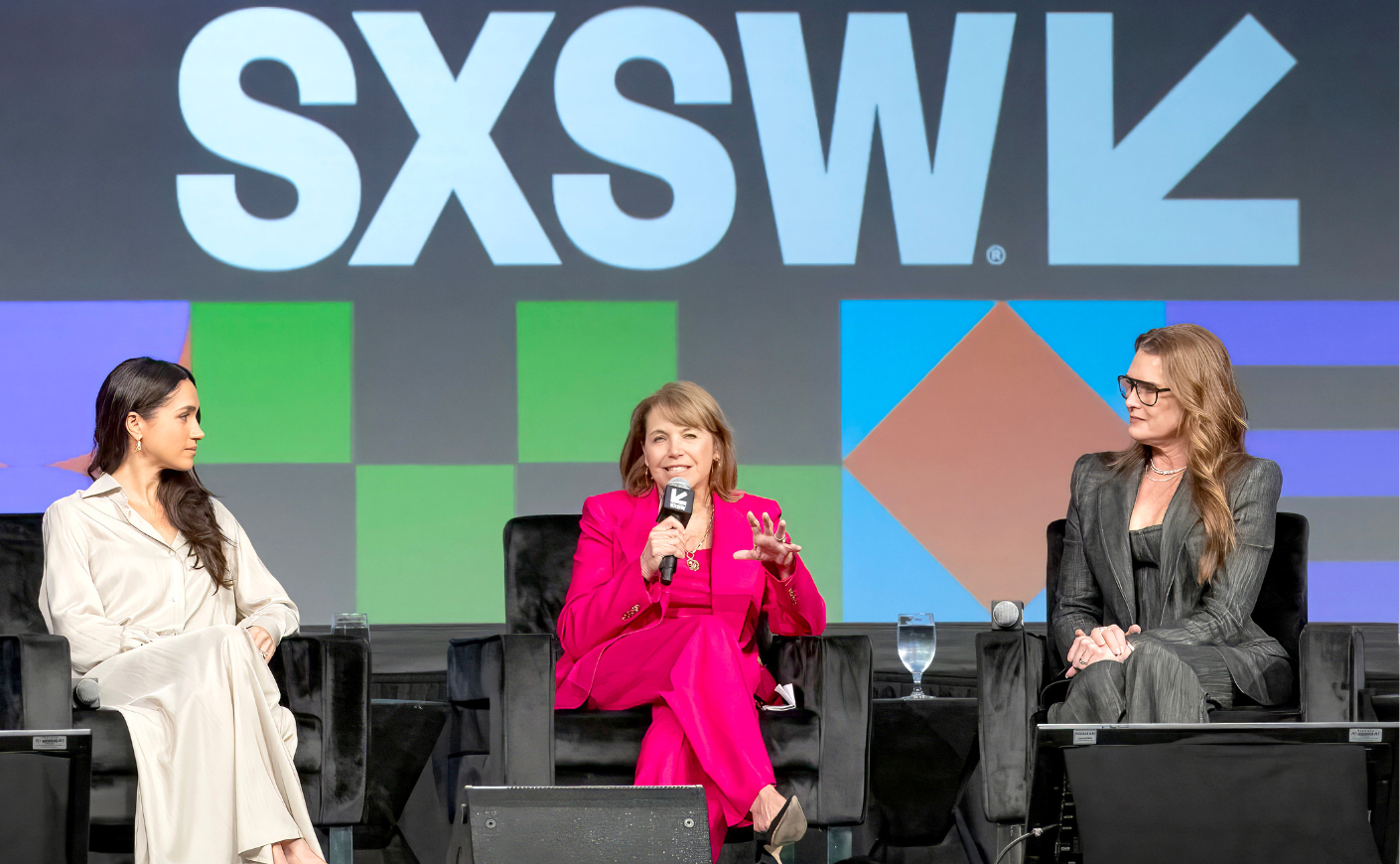Katie's currently in Austin, Texas, for the city's famed SXSW conference, and she kicked off the weekend with a bang — by joining a high-profile keynote panel featuring some major heavy-hitters.
The Friday afternoon session, titled "Breaking Barriers, Shaping Narratives: How Women Lead On and Off the Screen," found Katie in conversation with Meghan Markle, the Duchess of Sussex; acting legend and entrepreneur Brooke Shields; sociologist Nancy Wang Yuen; and moderator Errin Haines, editor-at-large of The 19th News. The group dug into some very important issues, including the depiction of women in media, the psychological effects of our lives online, and what work still needs to be done to accomplish true gender equity in our society.
If you weren't able to catch their talk in person, never fear! Read on for a recap of the biggest highlights from the convo between these inspiring and influential women.
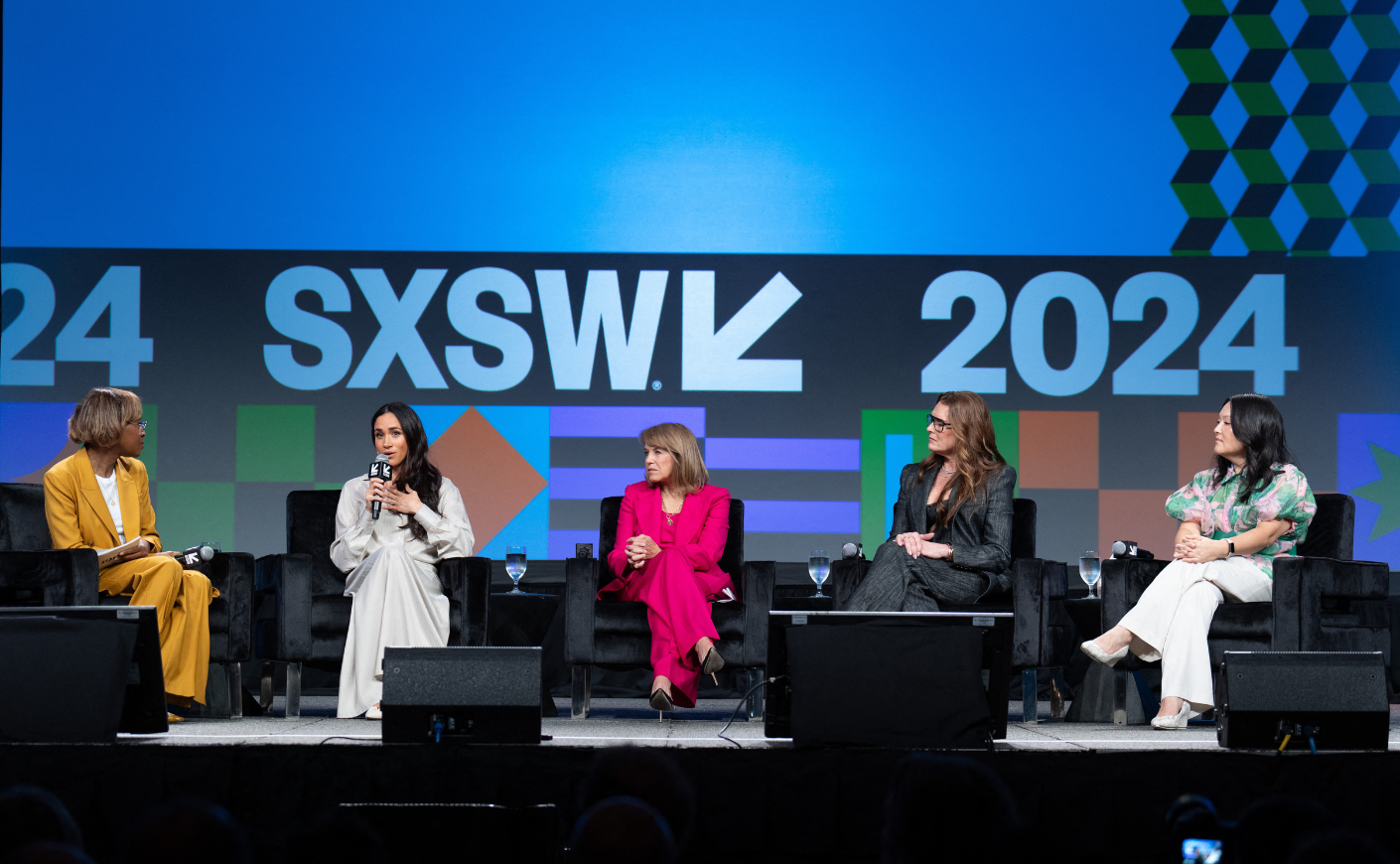
Meghan Markle's wise words about online bullying
Ever since her marriage to Prince Harry, Markle has been a lightning rod for controversy online — and as we know, thoughtful commentary on the web is often drowned out by aggressive hate speech, which is something she's experienced firsthand.
"I keep my distance from it right now, just for my own wellbeing, but the bulk of the bullying and abuse that I was experiencing in social media and online was when I was pregnant, with Archie and with Lili, and with a newborn with each of them," Markle said. "And you just think about that and really wrap your head around why people would be so hateful. It's not catty, it's cruel."
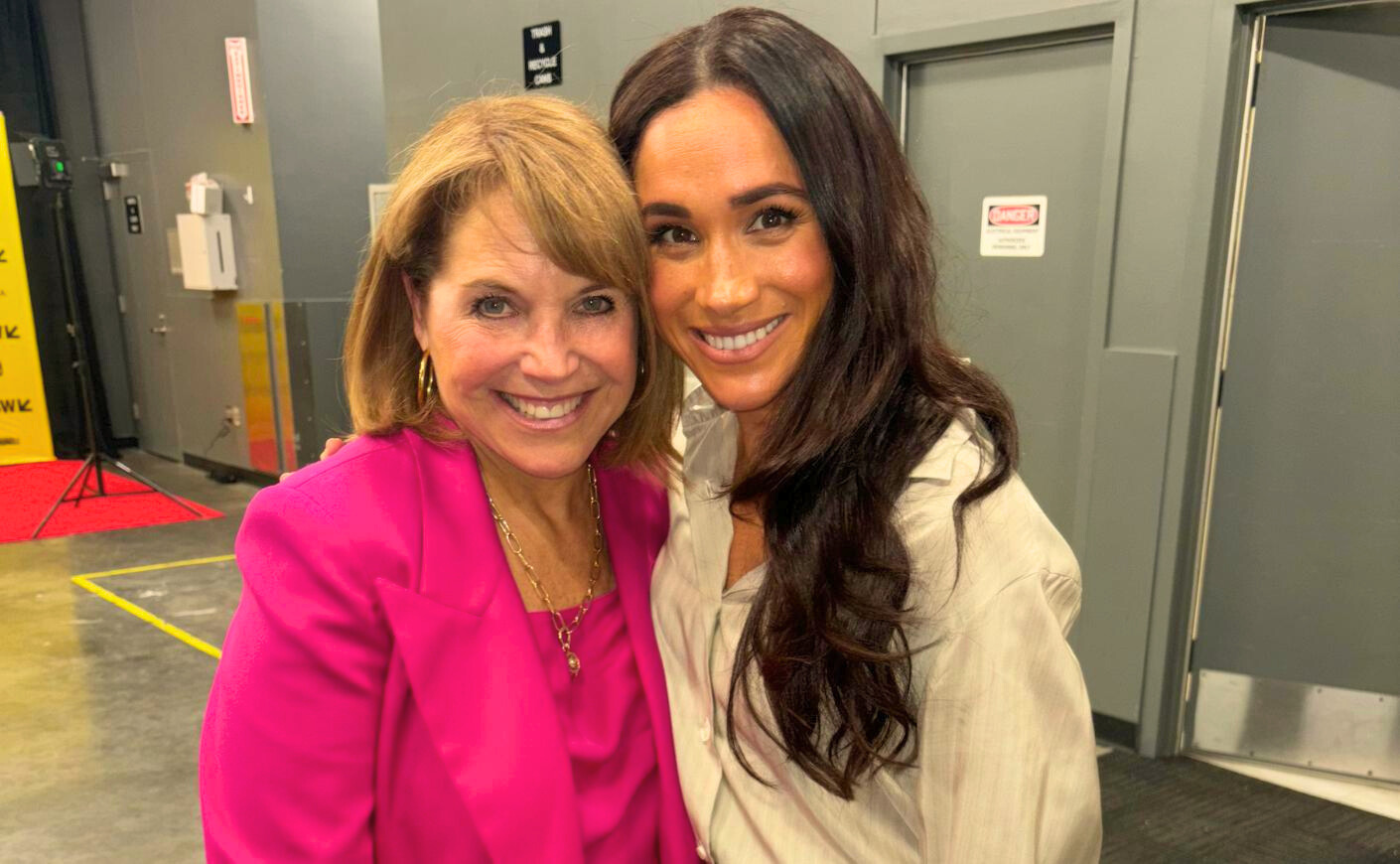
Markle said her "mammalian instinct" to protect her children (and herself) kicked in during the worst of the vitriol, but she remains aware of how this problematic feedback loop perpetuates itself online. During the panel, she called out social media platforms that "incentivize people to create pages where they can churn out very, very inciting comments and conspiracy theories that can have a tremendously negative effect on someone's mental health and their physical safety" — but also pointed out that it's important for users to assess their own hand in this, too.
"We have a responsibility, and all of that the systemic change has to happen at the same time as the cultural change is happening. Because if you're reading something terrible about a woman, why are you sharing it with your friends? Why are you choosing to put that out in the world? If it was your friend or your mom or your daughter, you wouldn't do it," she said. "That is the piece that is so lost right now with what's happening in the digital space and certain sectors of the media: We have forgotten about our humanity."
Markle added that social media can be especially dangerous for new moms, who experience a "really vulnerable time" after welcoming a child — and then are faced with impossible-to-meet standards online.
"It can be really dizzying to see this portrayal of motherhood that looks so perfect," she said. "We all know that it's not perfect. We all know that it's messy."

But she told the SXSW crowd that she's grateful that her husband, Prince Harry, is so understanding of the unique challenges of this time in a woman's life.
"I'm fortunate in that, amongst the privileges that I have in my life, I have an incredible partner. My husband is such a hands-on dad and such a supporter of me and our family," Markle said. "I don't take that for granted. That is a real blessing. But a lot of people don't have that same level of support."
Katie Couric schools the crowd on the evolution of women in media
Our very own Katie is a true trailblazer in her industry, and her decades of experience have given her a front-row seat to the changing tides of the media business when it comes to gender equality. As she discussed her early career, she whipped out one of her favorite lines to illustrate how different things were: "I entered the TV news business in 1979, and as I often say, it's when 'harass' was two words instead of one."
By the time she was offered her job at the TODAY show, Katie was 34 and five months pregnant, and had found the courage to make an essential demand: She wanted "a 50/50 division of labor with Bryant Gumbel." That meant she wanted to share in the serious, hard-hitting interviews, rather than being relegated to "cooking segments and fashion shows." The show's producers agreed to a 51/49 split instead — which was fine by Katie, even if it came with a few peculiarities.
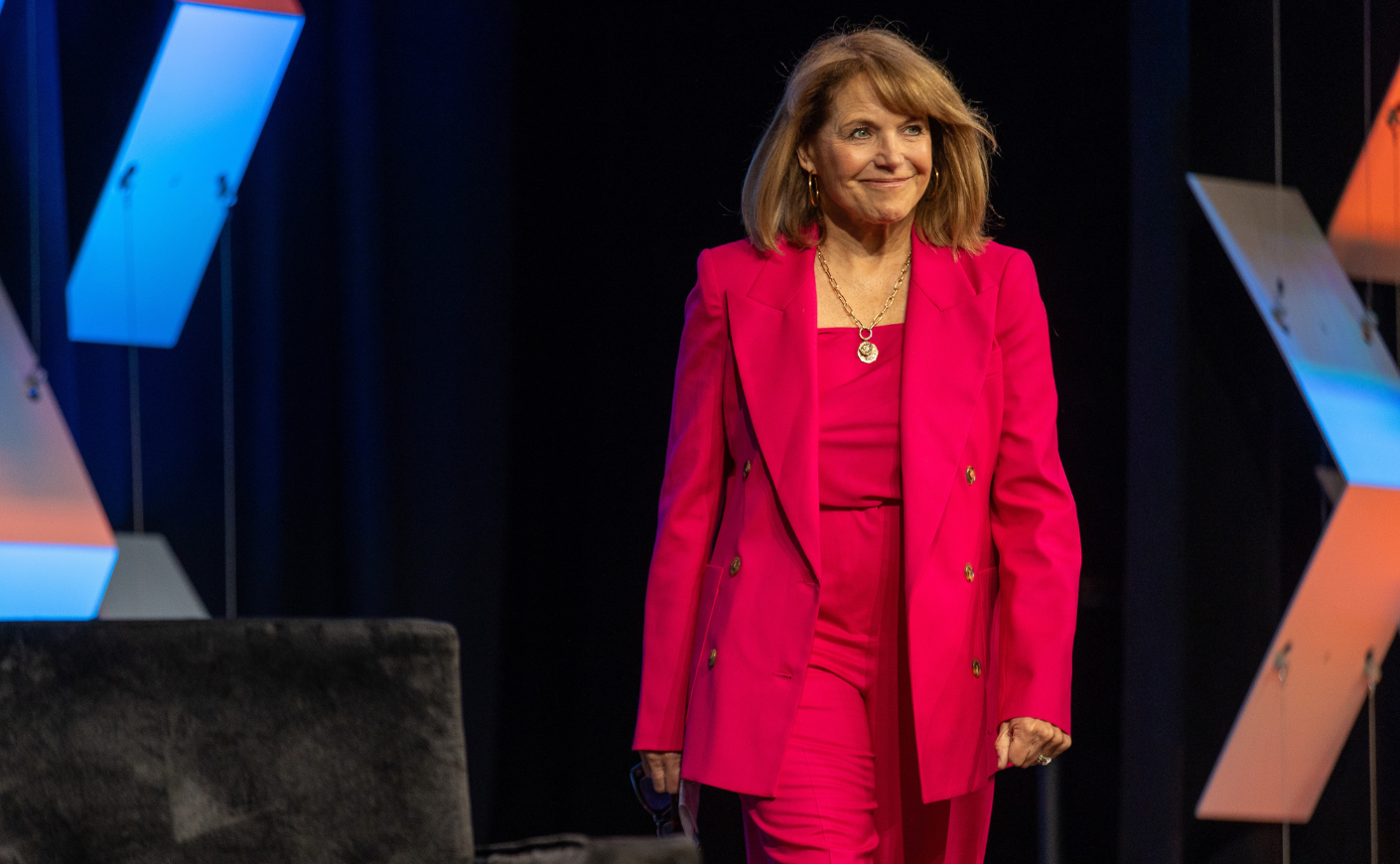
"Bryant Gumbel insisted that he open every show, that he throw to every commercial break, that he always throw to the weatherman... I think to convey the idea that he was in charge," Katie recalled. "But I think just by making that demand, eventually I had as much power and took on important jobs on the TODAY show. But from the get-go, I said, This is how I want to be seen, because I knew the impact. The dynamics of the show, the division of labor, who was doing presidential interviews — I knew little girls were watching that getting ready for school with their moms, and I wanted them to say, 'Look, she is just as good as he is.'"
But all her success couldn't protect Katie from future bumps in the road. Her CBS Evening News days were "really challenging," and the team there was often "really awful" to her. (She told the SXSW crowd to read her memoir, Going There, for the full story about what exactly happened — and we can confirm it's quite the tale.) But things have definitely improved — Katie pointed out that today, the presidents of the news divisions of ABC, NBC, CBS, MSNBC, and Fox News are all women.
Why Brooke Shields is committed to empowering women over 40
"Hollywood is predicated on eating its young. That's what it wants to do. It wants to build you up and then devour you," Shields said.
And Shields would know, considering she began her modeling career at a mere 11 months old and became the face of the steamy and highly controversial Calvin Klein ads that made quite the splash in the 1980s. She told the audience that making her 2023 documentary Pretty Baby helped her to better understand the way women are treated in Hollywood — and her part in it.
"We started talking about the sexualization of young women, especially in our country, and I was at the center of it. I was promoting it, and I was doing it. And I was lucky because I was surrounded by a very strong mom," she said. "I never did move to Hollywood. I always went to regular school. I had this community around me that was protecting me and buoying me, so I did not become the type of statistic that Hollywood creates."
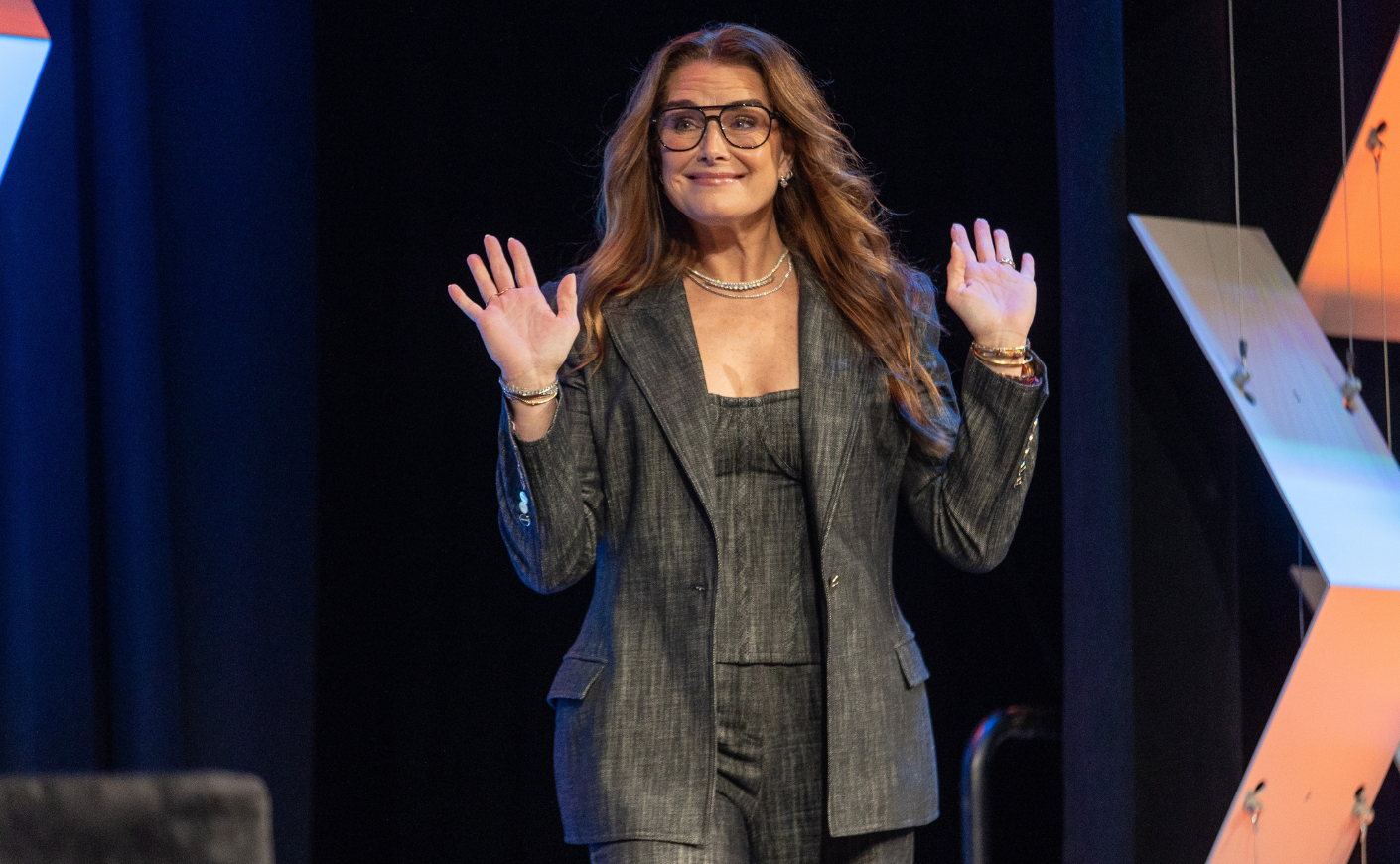
As we know, Shields has continued to be a Hollywood force well into her 50s, but she's well aware of how things change for women as they get older.
"At 58, you're too old to be the ingenue, but you're not quite the granny yet, and they don't know what to do with you. If you're not the sexy woman at the bar, you're in Depends or dentures — those are the things you're offered, literally," she said.
Shields said that rather than getting angry about this dynamic, she takes action by seeking out filmmakers who see the value in telling stories about older women — who embrace the "versatility, adaptability, intelligence and experience" of women who've lived a full life.
Markle (who has acting chops herself, as we know) agreed with that: "There's still a stigma in terms of the industry pigeonholing where you can be, as opposed to seeing us for the depth of knowledge and experiences, as you're saying, Brooke. There's just so much richness that can be given to roles when you have an actor who can bring that level of experience."
These issues are the reason Shields launched Beginning is Now, a global community to support women over 40 in living their fullest lives and being seen for who they really are. She said that fostering this safe space has been eye-opening for herself and everyone who participates: "When you get a bunch of women all together, when you listen to them supporting one another, and being galvanized by the belief that life isn't over at a certain age, there's a lot of energy and power in that."
Nancy Wang Yuen breaks down the stats on women in media
The panel included lots of thorough discussion about Rewriting Motherhood: How TV Represents Moms and What We Want To See Next, a new report from the Geena Davis Institute on Gender in Media and Moms First, with support from Markle's Archewell Foundation. Nancy Wang Yuen, a sociologist, pop culture expert, and DEI consultant, helped break down some of the most meaningful data points.
"On television, moms are represented as thin, young, white, and not really working outside of the home — which is a patriarchal fantasy, right?" she said. "This is not our real lives, and it erases the fact that the U.S., out of all the wealthy countries, is ranked second-to-last when it comes to child care and parental leave policies."
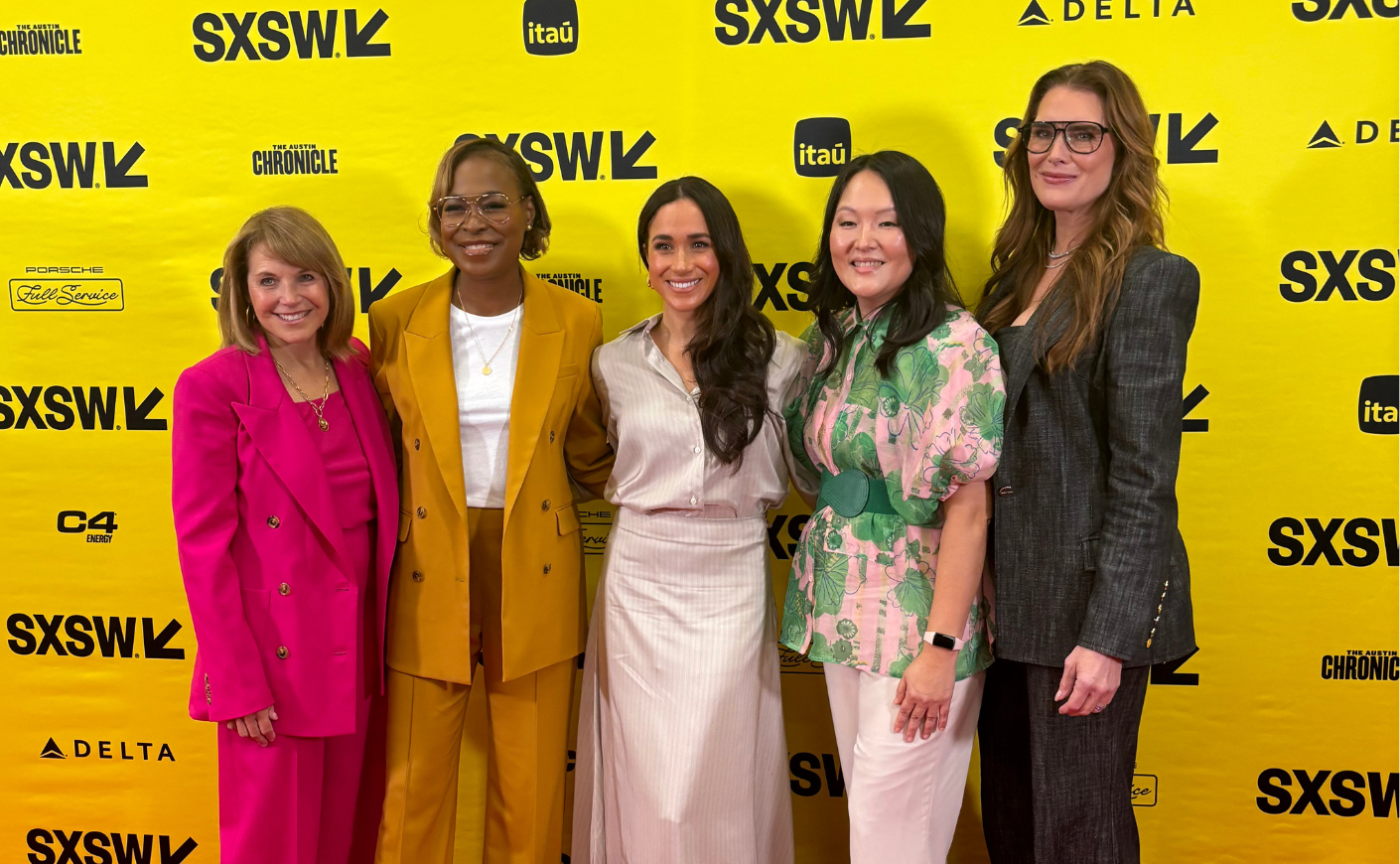
And while most of us know that motherhood actually looks very different from the depiction of solely thin, white, and young stay-at-home mothers, it's still common for power positions to be occupied by men who may not understand reality.
"When you have policymakers who are not working moms, for the most part, and they're not actually having contact with [those moms], they're deriving their ideas from television and film, just subconsciously. You know that's not real, but that's what you're seeing — 'Hey, everything's great, moms are mostly at home, men are the breadwinners,'" Wang Yuen said. "But reality is not reflected on television, and that really hurts policy and any kind of societal change."
The barrier-breaking woman who continues to inspire these esteemed panelists
Lots of names were thrown around during this conversation, in terms of women leading the path forward — including Ava DuVernay, Viola Davis, Reese Witherspoon, Abby Phillip, Jessica Valenti, and many more. But there's one name that popped up over and over: Gloria Steinem.
Shields was the first to namecheck the feminist icon, sharing a story about what Steinem taught her about how meaningful change really starts in America.
"I was in a group of women, and we were starting to talk about how to make change, make a difference, and move it forward. And [Steinem] said, 'Don't kid yourself: Every major movement started in a room like this, with six people,'" Shields remembered. "It's those little gems of ideas. It's the small incremental changes that we have to be vigilant on."
Markle then shared one valuable piece of wisdom she's picked up from Steinem's activism: "Gloria Steinem was one of the people who will say that any work that you're doing in the direction of good, you've got to make it fun... She loves working on a campaign. She loves what happens when you come together and you go, you know what? Inch by inch, we're getting closer to seeing a much better place, and certainly a better online world."
A little later, Markle closed out the panel with yet another reference to Steinem — specifically, to the way she's embraced her power at every age.
"She's such a fantastic example of why we all have to keep going. She's turning 90 this month, and she still knows there's work to be done, and she's not throwing in the towel," Markle said. "There's something so beautiful about that. Whether you're a 9-year-old girl or a 90-year-old woman, you can absolutely continue to make the change that we all need."







